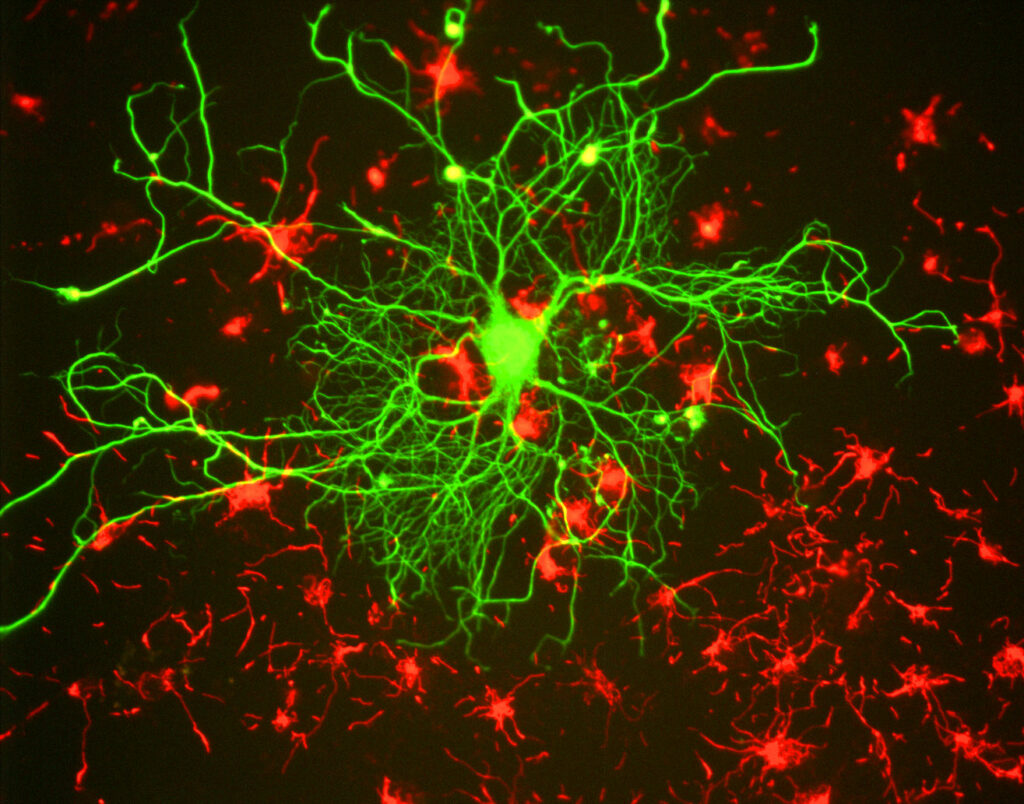A recent commentary by Ganesan Venkatasubramanian and Matcheri Keshavan notes that efforts to identify biomarkers in people diagnosed with psychiatric disorders have been overwhelmingly unsuccessful.
“Although, ‘concerted’ research efforts in the ‘decade of the brain’ and the years that followed have unraveled critical insights on the pathogenesis of psychiatric disorders, clinically translatable biomarkers in psychiatry are yet to be identified,” the authors write.
A biomarker or biological marker is an aspect of an illness that can reliably and repetitively be measured quantitatively. They stand in contrast with ‘symptoms’, which are aspects of illness that are experienced and can be reported by patients. Even in areas where there has been substantial research investigating the presence of biomarkers like in Alzheimer’s disease and Autism, the search to identify a meaningful and clinically significant biomarker has been unsuccessful, which “reiterate the fact that the current status of biomarkers in psychiatry has significantly lagged behind in comparison with other medical specialties,” note the authors.
For instance, a recent publication which performed a systematic and qualitative review of clinically meaningful biomarkers for psychosis examined more than 3,200 studies and found just one study that passed the author’s threshold of clinical applicability.
 One of the reasons behind these failures, they write is the use of categorical, symptom-based classifications systems of mental illness, like the DSM. Some in the field hope that an alternative classification system called the research domain criteria (RDoC), which attempts to integrate information from behaviors that can be observed and neurobiological measures, represents a promising alternative. However, there are others who critique this alternative system as well, pointing out that, like the DSM, it also de-emphasizes the social context of what we refer to as ‘mental illness’ by directing its focus on brain centered processes.
One of the reasons behind these failures, they write is the use of categorical, symptom-based classifications systems of mental illness, like the DSM. Some in the field hope that an alternative classification system called the research domain criteria (RDoC), which attempts to integrate information from behaviors that can be observed and neurobiological measures, represents a promising alternative. However, there are others who critique this alternative system as well, pointing out that, like the DSM, it also de-emphasizes the social context of what we refer to as ‘mental illness’ by directing its focus on brain centered processes.
The other factors the authors point out as contributing to the failure of biomarker discovery are methodological limitations in studies (e.g. use of small sample sizes, low power, and frequent non-replication), the paucity of good animal models of mental illness, and the weight given to hypotheses related to chemical imbalance theories.
The authors are proponents of “stratified psychiatry” and “systems biology” paradigms which focus on individual differences in genetics and biology and are part of the personalized medicine movement. These reflect relatively recent developments in psychiatry, which, continue to be focused on finding the holy grail of biomarkers, which have questionable clinical or practical significance.
****
Venkatasubramanian, G., & Keshavan, M. S. (2016). Biomarkers in Psychiatry – A Critique. Annals Of Neurosciences, 23(1), 3-5. doi:10.1159/000443549 (Full Text)















FYI allTODAY WE ARE LAUNCHING A PETITION ON CHANGE.ORG DESIGNED TO GET THIS LOOPHOLE IN GOVERNMENT OVERSIGHT AND THE PROPOSED SOLUTION INTO THE PLACE IT BELONGS, THE UNITED STATES CONGRESS.
[click the ostriches to see and or sign the petition]
The full text of our petition is long and detailed. This snippet has its essence:
“A Specific Proposal
We now petition Congress to require the FDA and NIH to coordinate their monitoring and sharing of key information through ClinicalTrials.gov. Working together, the two agencies could enable stakeholders to verify whether purported scientific claims are faithful to the a priori protocols and plans of analysis originally registered with the FDA. Publication of analyses for which such fidelity cannot be verified shall be prohibited unless the deviations are positively identified (as in openly declared unplanned, secondary analyses). This prohibition shall include scientific claims for on-label or off-label uses made in medical journals, archival conference abstracts, continuing education materials, brochures distributed by sales representatives, direct-to-consumer advertising, and press releases issued by companies or their academic partners. It shall extend to FDA Phase 2, Phase 3, and Phase 4 clinical trials. By acting on this petition, Congress will create a mechanism for stakeholders independently to verify whether inferences about clinical use suggested by the unregulated corporate statistical analyses can be trusted.”
Report comment
A likely marker that I could think of is the 50+ year old “mauve factor” kryptopyrolle test. There was nothing directly neurological about it, being a urine test. It was found in 5-10% of so-called normal people, and in increased numbers of physically and psychiatrically ill people, highest being in acutely ill patients with schizophrenia syndrome (90%). It was panned by the psychiatric community of the day for not being found in only one diagnostic group (a few thought it an artifact of coffee consumption).
It indicates a likely B6 and zinc deficiency or dependency, because KP positive patients improve on these nutrients, no matter what their diagnosis.
Report comment
It also means that you’re more likely to have a prolonged reaction to LSD.
Report comment
Well, that CLEARLY explains why it’s been ignored. You can fix it with nutritional supplementation? How’s a guy supposed to make billions of dollars on THAT?
Report comment
Maybe the reason they can’t find biomarkers is because most “mental illness” is environmentally activated and has little to do with biological causation.
Report comment
There are biological things in the biophysical environment in addition to the social environment. These things are intermixed, one affecting the other.
Report comment
Of course. The error is in thinking that these “conditions” share a common cause, and that the cause is necessarily biological. There are lots of things that can “cause” depression, from crappy parents to lack of sleep to chronic pain to nutritional deficiencies to existential angst about the meaning of life or one’s purpose on the earth. Why anyone would imagine for a second that all “depression,” which is clearly a NORMAL physiological signalling and survival strategy of the human organism, is a disease state that is necessarily a result of some brain malfunction is idiocy of the highest order. Unless, of course, you’re trying to make a lot of money off of duping people…
—- Steve
Report comment
Mine was brought on–or greatly exacerbated–by psych drugs. Instead of being allowed to recover from 3 weeks without REM sleep while on Anafranil, I was told to go to the psych ward where they put me on mega-doses of Haldol till I seized. They told me it was my “illness” while it was the drugs all the time!
After all the years of being lied to, I will never trust a psychiatric professional again. Pathological liars are unworthy of trust.
Report comment
Because so-called “mental illnesses” are exactly as real as presents from Santa Claus, I expect the expedition to the North Pole will find Santa’s Elves long before the pseudoscience drug racket of psychiatry finds the Holy Grail of it’s “biomarkers”….
(THAT is probably the most dense-with-meaning sentence I’ve ever written here!)
~B./ 😉
Report comment
Akansha, thanks for writing this article. And I hope the marriage and family therapists learn that today’s “psychosis” treatment, the antipsychotic / neuroleptic drugs, can create the negative symptoms of “schizophrenia,” via NIDS:
https://en.wikipedia.org/wiki/Neuroleptic-Induced_Deficit_Syndrome
And the antipsychotics / neuroleptics can also create the positive symptoms of “schizophrenia,” including “psychosis,” via anticholinergic toxidrome:
https://en.wikipedia.org/wiki/Toxidrome
And since neither of these neuroleptic induced illnesses are listed in the DSM, they are likely always misdiagnosed as one of the billable DSM disorders. I hope the marriage and family therapists will distance their profession from the psychiatric industry.
Report comment
I would say that even if we find biomarkers, the main question is: What do they even mean? Are they the cause or the effect? Or maybe both? Causality works both ways: our social environment, our behavior, our thoughts and our free will cause these neuronal changes just as much as those changes cause the former. It’s a bit of a chicken or egg question, I suppose.
Report comment
The other question is: so what? Let’s say we discover some biomarker that is more frequent in people who have a “schizophrenia” diagnosis. How would that help? We can’t change their biology, and psychiatry has no “cure” for any “disorder” they identify. The only purpose of studying biomarkers appears to be to try and “prove” that “mental illnesses” are biological so we don’t have to face the myriad ways our society makes people crazy.
—-Steve
Report comment
Don’t forget the psych profession itself, Steve. And all the social workers, case managers, day treatments and clubhouses. (I make an exception for those truly run by peers.)
Report comment